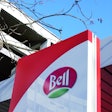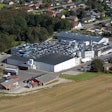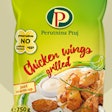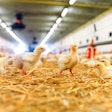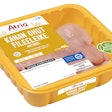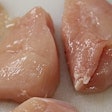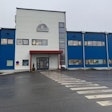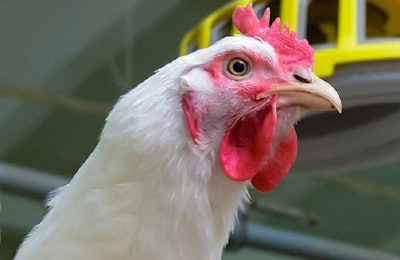
Results just published for the first quarter of the fiscal year support the strategy of Scandi Standard, which it set in the fourth quarter of last year.
This is according to managing director and CEO Jonas Tunestål, who stated that the group is in a good position to deliver on long-term value creation.
“Scandi Standard has attractive, tasty and affordable products, strong market positions, a clear focus on effective processes, and improved collaboration across all parts of the group,” he commented at the presentation of the company’s results for the January-March period.
General market conditions have returned to more normal levels compared with the significant hikes in input costs of early 2023, said Tunestål. This allowed the group to reduce consumer prices, which helped to stimulate demand for its products, and thus drive growth of both volumes and earnings for Scandi Standard.
The CEO added that the company’s focus over the three months had been on controlled volume growth, improved product mix, and greater efficiencies.
Margins higher despite dip in sales
For the first quarter of the 2024 fiscal year, net sales were down 4% at 3.16 billion krona (SEK; US$292 million; expressed at constant exchange rates).
Based in Sweden, Scandi Standard has operations producing chicken meat throughout the Nordic region, and also in the Republic of Ireland.
This dip in net sales occurred despite an 8% increase in total product output compared with the same period of last year. For the quarter just ended, this amounted to 70,133 metric tons (gross weight).
However, the group reports a year-on-year rise of 32% in operating income (Earnings Before Interest and Taxes; EBIT) to SEK122 million. This equated to improvements in margin from 2.8% to 3.9%, and EBIT per kilo from SEK1.42 to SEK1.74.
Mixed results by segment, business
Of Scandi Standard’s total net sales for the first quarter of 2024, 77% (SEK2.44 billion) derived from its ready-to-cook (RTC) segment. This compared with SEK2.37 billion for the same period of 2023, and helped to boost the segment EBIT from SEK31 million to SEK96 million.
In contrast, the group’s ready-to-eat (RTE) segment showed a 22% drop in net sales year-on-year to SEK594 million sales, while EBIT dropped from SEK45 million to SEK25 million.
However, the report highlights that sales have increased for RTE, and profitability has stabilized. These developments are seen as positive. They follow the loss of one large customer for the group’s RTE products, which resulted in a period of excess capacity at the group’s processing plant in Farre, Denmark.
At SEK125 million, net sales for the group’s third segment “other,” and adjusted EBIT tumbled from SEK17 million in the first quarter of 2023 to SEK1 million for the latest completed quarter. These trends were attributed by Scandi Standard to a fall in prices on the global market.
Accounting for 76% of the group’s net sales were retail sales. Nine percent of sale were via food service, 7% through exports, and 8% via other channels.
While frozen products accounted for 20% of sales, the rest was in the form of various chilled items. The share of this latter category has risen by two percentage points since the first quarter of last year.
By geographical split, Ireland was the source of the highest proportion of group net sales for the last quarter with 28%, closely followed by home market Sweden (25%). Somewhat lower contributions originated in Denmark (20%), Norway (18%), and Finland (9%). With the exception of its home market, three-month net sales were higher year-on-year in all its other countries of operation.
Developments in sustainability
A priority focus area for Scandi Standard continues to be the integration of sustainability into its operations and strategy. In its reporting, the group now includes some sustainability metrics.
Over the past quarter, Tunestål reported that the group is now also integrating sustainability into its investment decisions. As well as quantitative factors such as energy use, assessments now include qualitative elements, such as animal welfare, water quality, and the health and safety of the workforce.
At 1.50, the group achieved the same feed efficiency in the first quarter of 2024 as in the same period of last year, and the average for the whole of 2023.
The proportion of flocks treated with antibiotics was 8.8% in the January-March period — down from 9.3% in 2023.
As an indication of animal welfare, the average foot score reported was greatly reduced from 14.9 one year ago to 8.4 for the latest quarter.
No critical complaints were received by the group over the three-month period.
More on Scandi Standard
With annual chicken slaughterings approaching 178 million, Scandi Standard is the largest poultry company based in Sweden, and easily in the Top 20 producers in Europe, according to WATTPoultry.com’s Top Poultry Companies survey.
The firm’s own website states that Scandi Standard is the leading producer of chicken-based foods in both the Nordic region and Ireland. It produces, markets, and sells ready-to-eat, chilled, and frozen products under a number of brands, including Kronfågel, Danpo, Den Stolte Hane, Manor Farm, and Naapurin Maalaiskana. Its Norwegian subsidiary also produces and sells eggs.
Year-on-year, Scandi Standard reported improved margins in its financial report for the last full year ended December of 2023. Net sales exceeded SEK13 billion, which was a year-on-year increase of 4% (when expressed at constant exchange rates).
In January, the firm confirmed it had acquired the assets of Landeli Oy. This Finnish-based poultry processing and RTE food business was expected to strengthen the position in Finland of Scandi Standard through its local subsidiary, Naapurin Maalaiskana.








